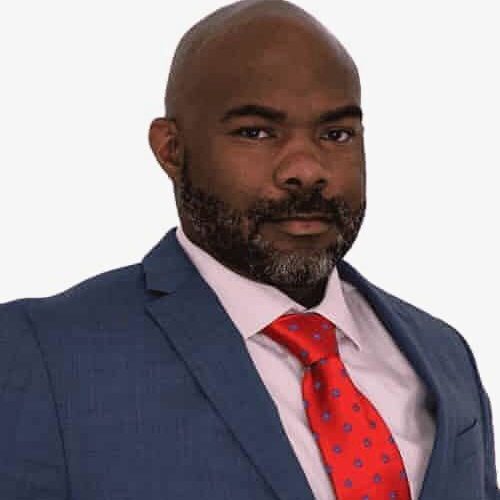Internal Family Systems therapy helps you heal by recognizing that your mind contains distinct parts, each serving a protective purpose. Through IFS, you’ll learn to identify and welcome these different aspects of yourself, from the perfectionist managers to the wounded inner children. With guidance, you can shift from internal conflict to collaboration, allowing your authentic Self to lead with compassion. As you understand your inner system better, deep transformation becomes possible.
The Core Principles of IFS Therapy

Five foundational principles form the cornerstone of Internal Family Systems (IFS) therapy, revolutionizing how one apprehends and heal the human psyche. Through parts-led self discovery, you’ll understand that your mind naturally contains multiple aspects, each playing essential roles in your psychological makeup. Your inner parts work as a family system to maintain psychological balance and protection.
At your core, you possess an undamaged Self that can guide healing and harmonize internal dynamics. This innate Self possesses pure compassion from birth, independent of external influences. You’ll learn that there are no “bad” parts within you – each serves a protective function, even when their methods seem counterproductive. The journey unfolds with natural progression, as the therapeutic process respects each individual’s unique healing timeline. Your adventure involves building secure attachment through Self-leadership rather than external validation. As you recognize and appreciate the distinct roles of your parts, you’ll develop greater internal harmony, allowing your authentic Self to emerge and guide your healing process with wisdom and compassion.
Understanding Your Internal Family System
Building on these core principles, let’s investigate how your internal family system actually works in practice. Your consciousness consists of distinct parts, each playing essential roles in your psychological well-being. When you’re working through internal polarities, you’ll uncover these parts often operate as protectors, trying to shield you from emotional pain. A successful therapeutic approach requires you to welcome each part as an honored guest in your psychological space. Integration and healing occurs when all parts work harmoniously together rather than at cross-purposes. The system works best when the competent Self leads while maintaining healthy relationships with all parts.
| Part Type | Primary Role | Common Behaviors |
|---|---|---|
| Managers | Preventive Control | Perfectionism, Planning |
| Firefighters | Emergency Response | Impulsive Actions, Addictions |
| Exiles | Wound Carriers | Holding Trauma, Deep Pain |
The key to healing lies in balancing protective parts while accessing your Core Self, the compassionate center of your system. By understanding how these parts interact, you can work with them rather than against them, leading to deeper self-awareness and emotional resolution.
Breaking Free From Trauma Patterns

When trauma patterns keep you stuck in cycles of reactivity, understanding the interplay between your internal parts becomes essential for healing. By aligning protective parts with your core Self, you’ll begin to shift from conflict to collaboration within your internal system. Rather than fighting against managers and firefighters, you can appreciate their protective intentions while gently releasing their outdated strategies. Taking a safe and gradual approach allows you to build trust with each protective part at your own pace.
Through integrating fragmented selves, you’re able to reclaim energy previously spent on defensive patterns. Your Self can lead with curiosity and compassion, helping exiled parts share their burdens without overwhelming you. This inner work becomes possible because the Self is central in coordinating behaviors and responses. Recent studies show that virtual treatment options can make this healing work more accessible to those seeking support. As you practice staying present with difficult emotions, you’ll develop stronger awareness of when parts activate, allowing you to respond thoughtfully rather than react automatically to triggers.
Building Emotional Resilience Through Self-Leadership
Self-leadership offers a powerful path to emotional resilience by uniting your internal parts under clear guidance. Through mindful awareness, you’ll learn to identify and harmonize different aspects of yourself – from protective anger to vulnerable fear creating more harmonious internal dynamics. When self-energy emerges, profound healing naturally unfolds within the system. Studies show that welfare satisfaction significantly impacts resilience development in healthcare settings. This integration helps you respond to challenges with greater flexibility and wisdom. Developing cognitive reappraisal techniques allows you to transform negative thought patterns into constructive perspectives that support healing.
Transforming Self-Criticism Into Self-Compassion

When you’re caught in a cycle of harsh self-judgment, you’ll find relief by learning to relate to your inner critical voices as protective parts that need understanding rather than rejection. You can transform self-criticism into self-compassion by engaging these parts with curiosity and kindness, recognizing that they developed their harsh methods in an attempt to keep you safe. These protective parts often work as inner guardians who aim to shield you from experiencing deeper emotional pain. By accessing your core Self, the calm, compassionate center within you, you’ll develop the inner leadership needed to heal these protective parts and create lasting positive change. This healing journey acknowledges that experiencing setbacks is part of our shared human condition, helping you move forward with greater acceptance and resilience.
Breaking Inner Critical Voices
Inner critics, those persistent voices of self-judgment and doubt, often serve as protective mechanisms developed during childhood. By unmasking self-protection patterns, you’ll uncover these critics actually aim to shield you from perceived threats like rejection or failure.
Transforming self-judgment begins with understanding that your inner critic carries burdens from past experiences. Through IFS therapy, you’ll learn to dialogue with these critical parts using the 8 Cs approach, particularly curiosity and compassion. Instead of fighting against these voices, you’ll create mental distance to observe them without fusion. Research has shown that developing self-compassionate responses helps counteract the negative psychological effects of harsh self-criticism. As you validate their protective intentions and address root causes, your critics will naturally soften. This process helps you develop self-trust while recognizing that criticism stems from adaptation rather than inherent flaws.
Embracing Parts With Kindness
Through the lens of Internal Family Systems therapy, embracing your parts with kindness opens a gateway to profound healing and self-acceptance. By providing compassion to your inner critics and protective parts, you’ll begin to understand their genuine attempts to shield you from perceived threats and emotional pain.
Start fostering curiosity about these parts rather than judging them harshly. When you approach your inner critics with gentle interest, you’ll uncover their underlying needs and protective intentions. You can rewrite your internal dialogue, replacing harsh self-talk with affirming statements that honor each part’s purpose. Through mindful engagement and self-compassion practices, you’ll learn to maintain presence while connecting with different aspects of yourself, creating space for healing conversations that integrate these fragments into a more cohesive whole.
Cultivating Core Self Leadership
By accessing your Core Self qualities, you’ll uncover a natural capacity for transforming harsh self-criticism into nurturing self-compassion. Through your self exploration journey, you can learn to lead from a place of calm, curiosity, and creativity rather than judgment and fear.
Nurturing self leadership develops as you build trust in your Core Self’s wisdom. When you approach your inner critics with understanding rather than resistance, you’ll recognize them as protective parts trying to help. Through mindful practices like meditation and journaling, you can strengthen your connection to Self energy, allowing you to respond to challenges with greater clarity and compassion. As you consistently engage your parts from this grounded perspective, self-criticism naturally gives way to more supportive internal dialogue and sustainable emotional wellbeing.
Healing Childhood Wounds With IFS
Recognizing and healing childhood wounds represents a core focus of Internal Family Systems (IFS) therapy, where your past experiences are honored and understood through a unique lens of inner parts. Through IFS, you’ll learn to identify and work with protective patterns that emerged from early trauma, addressing developmental gaps and resolving internal conflicts that have shaped your responses to life’s challenges.
The healing process centers on your Self, your core essence of compassion and wisdom, which helps release emotional burdens carried by wounded parts. As you develop a deeper connection with these parts, you’ll notice significant improvements in your well-being, including reduced PTSD symptoms, better emotional regulation, and decreased physical pain. This internal work creates lasting change by fostering self-compassion and nurturing healthier relationships with yourself and others.
Managing Depression and Anxiety Naturally
While healing childhood wounds lays the groundwork for recovery, managing depression and anxiety naturally requires a holistic approach that combines IFS principles with practical coping strategies. You’ll learn to identify and work with your protective “manager” parts that may be rigidly controlling your emotions, while addressing any impulsive “firefighter” behaviors that serve as temporary escapes.
Understanding the family systems impact on your mental health is vital. Through IFS work, you’ll develop stronger emotional regulation skills and self-compassion practices that replace harsh self-criticism. If you’re a parent, enhancing your parenting skills through this process can create a positive ripple effect, as you’ll model healthier coping strategies for your children. By integrating these approaches, you’re building a sustainable foundation for long-term emotional wellness.
Strengthening Relationships Through Inner Work
When you investigate your inner world through Family Systems Therapy, you’ll begin to understand how past wounds and protective parts have shaped your ability to trust and connect with others. By learning to listen to your inner child and different aspects of yourself compassionately, you can heal old hurts that may be blocking authentic relationships in the present. Your improved self-awareness and ability to communicate with your internal parts will naturally strengthen your external relationships, creating deeper understanding and more meaningful connections with loved ones.
Building Trust With Self
As you progress on the path to healing through Family Systems Therapy, building trust with your Self serves as a foundational pillar for lasting transformation. When you learn to recognize and connect with your Self’s natural qualities of compassion and clarity, you’ll develop deeper self acceptance and self trust. This process involves understanding how your protective parts have shielded you from past hurts while learning to release their burdens.
- Notice when protective parts are driving your reactions instead of your Self
- Practice connecting with your Self through mindful awareness and curiosity
- Validate the role each protective part has played in your survival
- Allow your parts to gradually trust your Self’s leadership
- Cultivate compassion for all aspects of your inner system, including wounded parts
Healing Inner Child Wounds
Building trust with your Self opens the door to another profound aspect of healing: working with your inner child. Through inner child integration, you’ll uncover parts of yourself that carry unmet childhood needs and emotions that influence your current behaviors and relationships.
Self reparenting strategies help you meet these needs with compassion and consistency. As you nurture your inner child, you’ll release protective patterns that may have served you in the past but no longer support your well-being. You’ll learn to provide the safety, validation, and emotional support that your younger self needed.
This healing process strengthens your ability to regulate emotions, build resilience, and form healthier relationships. By addressing childhood wounds with gentleness and understanding, you’ll develop more authentic ways of connecting with yourself and others.
Improving Communication Through Parts
Three distinct parts of your inner world shape how you communicate with others: managers who seek control, firefighters who react defensively, and exiles who carry emotional wounds. By understanding these parts, you’ll develop nonviolent conflict resolution skills and improve interpersonal dynamics. When you learn to identify which part is driving your reactions, you can pause, let your authentic Self lead, and communicate more effectively.
- Notice when your manager part tries to control conversations through criticism or judgment
- Recognize when your firefighter part wants to defend, argue, or shut down
- Allow your exiles to safely express their needs without overwhelming you
- Practice active listening from your Self rather than reactive parts
- Respond thoughtfully instead of letting parts hijack your communication
Through this awareness, you’ll create deeper connections and healthier relationships with others while honoring all parts of yourself.
Developing Long-Term Emotional Wellness
What makes emotional wellness sustainable over the long term? Through family systems therapy, you’ll develop a deeper self-understanding that helps you navigate life challenges with greater resilience. As you work with a trained therapist, you’ll learn to build lasting emotional stability by addressing and healing different parts of yourself.
The process empowers you to reduce harmful coping mechanisms while creating sustainable solutions for managing your mental health. You’ll uncover how to engage in continuous self-reflection, which allows you to address emotional needs proactively rather than reactively. This approach has shown significant improvements in emotional regulation and comprehensive stability, particularly when guided by experienced therapists. By fostering an integrated healing approach, you’ll develop the self-leadership skills needed to maintain long-term wellness and face future challenges with confidence.
Frequently Asked Questions
How Long Does an Average IFS Therapy Session Typically Last?
Your typical IFS therapy session will last between 45-60 minutes, following standard psychotherapy session duration guidelines. You’ll usually meet with your therapist weekly, maintaining consistent session frequency throughout your treatment. While this timeframe works well for most clients, your therapist may adjust the length based on your specific needs. For intensive work or crisis situations, you might occasionally need longer sessions to address complex emotional material effectively.
Can IFS Therapy Be Effectively Conducted Through Online or Virtual Sessions?
Yes, you can effectively engage in IFS therapy through virtual sessions. While maintaining the same session structure as in-person meetings, online platforms provide convenient access from your home. You’ll need a stable internet connection and private space to minimize technological limitations. Research shows that virtual IFS delivers comparable therapeutic outcomes, and many clients find it similarly effective for exploring their internal system and achieving healing breakthroughs.
What Qualifications Should I Look for When Choosing an IFS Therapist?
When choosing an IFS therapist, you’ll want to verify they have specialized training through the IFS Institute, including Level 1 and Level 2 certification. Look for experienced practitioners who maintain regular continuing education and clinical consultation. It is crucial that they have at least 200 hours of practical experience and hold relevant professional licenses. Don’t hesitate to ask about their specific expertise with your concerns and their approach to parts work.
Is IFS Therapy Covered by Most Insurance Plans?
Most IFS therapists work as out-of-network providers, so you’ll typically need to pay session costs upfront and submit claims for reimbursement. While insurance coverage varies, you’ll need a diagnosed condition (like anxiety or depression) for potential coverage. Your therapist can provide superbills to help with claims, but be aware that relational therapy is often excluded. Consider discussing payment options directly with potential therapists, as many offer sliding scales to make treatment more accessible.
How Often Should Someone Attend IFS Therapy Sessions for Optimal Results?
You’ll typically benefit most from weekly IFS sessions, especially when starting your healing path. Your therapeutic goals and current life challenges will guide the frequency adjustments needed. While weekly sessions help maintain momentum, you might need twice-weekly meetings during intense periods or could switch to biweekly sessions as you progress. Remember, there’s no one-size-fits-all approach work with your therapist to determine what schedule best supports your unique healing process.
















